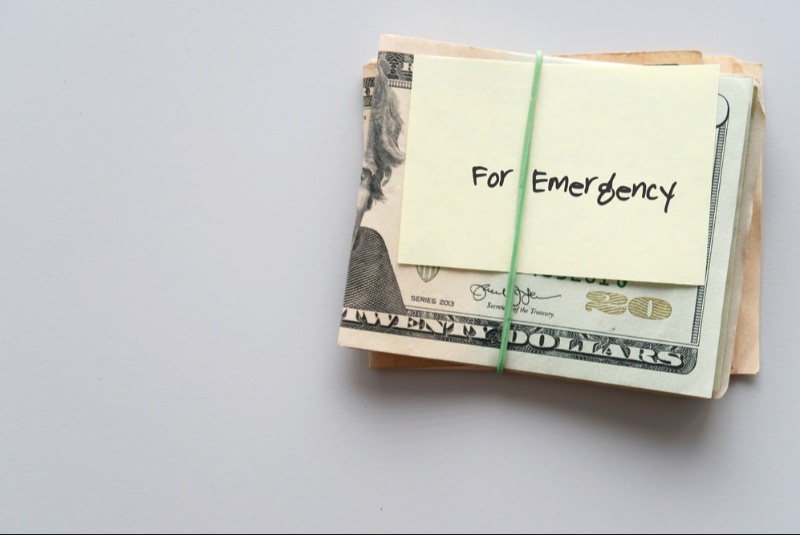Emergencies and disasters can strike unexpectedly, bringing significant financial challenges. Whether it's a natural disaster, a medical emergency, or an economic downturn, being financially prepared can help you navigate through tough times with greater ease. This comprehensive guide offers essential financial tips for disaster preparedness, ensuring that you and your family can maintain stability and recover more quickly. Implement these strategies to build a resilient financial foundation and protect yourself against unforeseen events.
Create an Emergency Fund
An emergency fund is a critical component of financial preparedness. Aim to save at least three to six months’ worth of living expenses in a separate, easily accessible savings account. This fund acts as a financial cushion, providing you with the means to cover essential expenses if your income is disrupted or unexpected costs arise. Regularly contribute to your emergency fund, and avoid dipping into it for non-emergency expenses. Having an emergency fund ensures you have financial security during difficult times.
Review and Update Insurance Policies
Insurance is a vital tool for protecting your finances during disasters. Review your insurance policies, including health, home, auto, and life insurance, to ensure they provide adequate coverage. Update your policies to reflect any changes in your circumstances, such as home renovations or new valuable possessions. Consider additional coverage options, such as flood or earthquake insurance, if you live in a high-risk area. Regularly reviewing and updating your insurance policies helps ensure you have the necessary protection when disaster strikes.
Create a Financial Emergency Plan
Developing a financial emergency plan helps you prepare for and respond to financial crises. Start by listing all your essential expenses, such as housing, utilities, food, and transportation. Identify potential sources of income during an emergency, such as savings, insurance payouts, or government assistance. Create a budget that prioritizes these essential expenses and outlines how you will allocate your funds during a crisis. Having a financial emergency plan in place helps you make informed decisions and manage your resources effectively during challenging times.
Keep Important Documents Safe
Safeguarding important documents is crucial for financial preparedness. Store essential documents, such as identification, insurance policies, bank statements, and property deeds, in a secure, waterproof, and fireproof container. Consider keeping digital copies of these documents on a secure cloud storage service for easy access. In the event of a disaster, having quick access to your important documents ensures you can quickly file insurance claims, access financial resources, and prove your identity and ownership of assets.
Reduce Debt
Reducing debt is a key strategy for financial preparedness. High levels of debt can strain your finances and limit your ability to respond to emergencies. Focus on paying down high-interest debt, such as credit card balances and personal loans, as quickly as possible. Consider consolidating your debts to lower your interest rates and simplify your payments. Reducing your debt burden frees up more of your income for savings and essential expenses, enhancing your financial stability during emergencies.
Maintain a Good Credit Score
A good credit score is essential for accessing financial resources during emergencies. Lenders use your credit score to assess your creditworthiness and determine the terms of loans and credit lines. Pay your bills on time, keep your credit card balances low, and avoid opening unnecessary credit accounts. Regularly check your credit report for errors and dispute any inaccuracies. Maintaining a good credit score ensures you can secure loans and credit on favorable terms when you need them most.
Diversify Your Income Streams
Relying on a single source of income can be risky, especially during economic downturns or job loss. Diversifying your income streams can provide financial security and reduce the impact of income disruptions. Consider freelance work, part-time jobs, or passive income opportunities, such as investments or rental properties. Building multiple income streams helps ensure you have financial stability and flexibility, allowing you to weather financial challenges more effectively.
Build a Network of Support
Having a strong network of support can be invaluable during emergencies. Build relationships with family, friends, neighbors, and community organizations who can offer assistance and resources. Join local support groups and online communities focused on disaster preparedness. Your network can provide emotional support, share valuable information, and offer practical help, such as temporary housing or financial assistance. A robust support network enhances your resilience and ability to recover from disasters.

Stay Informed and Educated
Staying informed about potential risks and learning about financial preparedness can help you make proactive decisions. Follow news and updates about local and global events that could impact your financial stability. Take advantage of resources and workshops offered by financial institutions, government agencies, and nonprofit organizations to enhance your financial literacy. Educating yourself about financial management and disaster preparedness empowers you to take control of your finances and respond effectively to emergencies.
Regularly Review and Adjust Your Plan
Financial preparedness is an ongoing process that requires regular review and adjustment. Periodically assess your financial situation, emergency fund, insurance coverage, and emergency plan to ensure they remain relevant and adequate. Make adjustments based on changes in your life circumstances, financial goals, and risk factors. Staying proactive and keeping your financial preparedness plan up-to-date ensures you are always ready to face any challenges that come your way.
Utilize Government and Community Resources
During disasters, government and community resources can provide essential support. Familiarize yourself with available assistance programs, such as unemployment benefits, disaster relief funds, and food assistance programs. Local community organizations and nonprofits often offer financial aid, counseling, and other support services. Knowing where to find help and how to access these resources can ease your financial burden and help you recover more quickly from a disaster.
Prioritize Health and Safety
Your health and safety are paramount during emergencies. Invest in health insurance to cover medical expenses and maintain a healthy lifestyle to reduce the risk of illness and injury. Keep an emergency kit with first aid supplies, medications, and essential items to ensure you can respond to health emergencies. Prioritizing your health and safety helps you avoid additional financial strain caused by medical emergencies and allows you to focus on managing other aspects of your financial preparedness.
Prepare for Job Loss
Job loss is a common consequence of economic downturns and disasters. Prepare for this possibility by building a robust emergency fund, maintaining a good credit score, and updating your resume and professional skills. Network with industry contacts and stay informed about job opportunities in your field. Having a plan in place for job loss ensures you can quickly find new employment and minimize financial disruption.
Plan for Long-Term Recovery
Long-term recovery from a disaster often requires significant financial resources and planning. Consider investing in long-term savings accounts, retirement plans, and other financial instruments that can provide stability in the future. Assess your financial goals and create a roadmap for achieving them, even in the face of potential setbacks. Planning for long-term recovery helps you build a resilient financial future and ensures you can achieve your financial aspirations despite challenges.
Financial preparedness is essential for navigating the uncertainties of disasters and emergencies. By creating an emergency fund, reviewing insurance policies, developing a financial emergency plan, and taking proactive steps to safeguard your finances, you can enhance your resilience and stability. Regularly review and adjust your plan, stay informed, and utilize available resources to ensure you are always prepared for whatever challenges come your way. Implement these financial tips to protect yourself and your family, ensuring a secure and stable future.


